Oxten-150 Tablet 10's
MRP ₹69
(Inclusive of all Taxes)
₹10.3 Cashback (15%)
Provide Delivery Location
Online payment accepted
 Prescription drug
Prescription drugWhats That
Composition :
Manufacturer/Marketer :
Consume Type :
Expires on or after :
Return Policy :
About Oxten-150 Tablet
Oxten-150 Tablet belongs to a group of medicines called anti-convulsants or anti-epileptics used to treat epilepsy/seizures/fits. Epilepsy is a central nervous system disorder characterized by a sudden rush of electrical activity in the brain leading to seizures, unusual behaviour, and loss of awareness.
Oxten-150 Tablet works by reducing the attacks of seizures or epilepsy by decreasing the nerve impulses that cause fits. Thereby helps in controlling seizures.
You are advised to take Oxten-150 Tablet for as long as your doctor has prescribed it for you depending on your medical condition. In some cases, you may experience common side-effects such as dizziness, sleepiness, tiredness, headache, nausea, vomiting, double vision, stomach pain, diarrhoea or constipation, and weakness. You are advised to talk to your doctor if you experience these side-effects persistently.
Please do not stop taking Oxten-150 Tablet without consulting your doctor to avoid precipitating seizures. Do not take Oxten-150 Tablet if you are pregnant or planning for pregnancy unless prescribed by the doctor. Avoid taking Oxten-150 Tablet while breastfeeding as it may cause side-effects in breastfed babies. Oxten-150 Tablet should not be given to children unless prescribed. Consult your doctor immediately if you experience suicidal tendencies.
Uses of Oxten-150 Tablet
Directions for Use
Key Benefits
Oxten-150 Tablet belongs to a group of medicines called anti-convulsants or anti-epileptics. Oxten-150 Tablet is used to treat epilepsy/seizures/fits. Oxten-150 Tablet works by decreasing the nerve impulses that cause fits and pain thereby controlling seizures. Oxten-150 Tablet is used alone or in combination to treat and prevent partial seizures in adults. Oxten-150 Tablet may be used as sole therapy in treating and preventing seizures in children above 4 years or is used in combination in children above 2 years. Oxten-150 Tablet does not cause dependence or tolerance.
Storage
- Consume controlled amounts of salt to raise sodium levels.
- Eat fresh fruits like apples, berries, oranges, mangoes, and bananas.
- Include fresh vegetables like broccoli, sweet potatoes, beets, okra, spinach, peppers, carrots, and edamame.
- Choose frozen vegetables without added butter or sauce.
- Drink electrolyte beverages like sports drinks or electrolyte solutions to replenish sodium and other electrolytes.
- Avoid excessive salt intake, but allow for controlled increases as needed.
- Monitor and manage underlying health conditions that may contribute to hyponatremia.
- If you experience angioedema, inform your doctor immediately. Treatment can help keep the swelling under control.
- Seek medical attention if symptoms are severe, such as difficulty breathing or swallowing.
- Follow your doctor's instructions to manage symptoms, which may include stopping or adjusting the medication that triggered angioedema.
- Your doctor may also recommend antihistamines, steroids, or other treatments to reduce swelling and inflammation.
- Make dietary and lifestyle changes as recommended, such as avoiding trigger foods or reducing stress.
- Monitor your condition closely and track your symptoms to report them to your doctor.
- Consult your doctor again if symptoms worsen or do not improve or if you experience any new or concerning symptoms.
- Rest well; get enough sleep.
- Eat a balanced diet and drink enough water.
- Manage stress with yoga and meditation.
- Limit alcohol and caffeine.
- Physical activities like walking or jogging might help boost energy and make you feel less tired.
- Inform your doctor about the nausea and discuss possible alternatives to the medication or adjustments to the dosage.
- Divide your daily food intake into smaller, more frequent meals to reduce nausea.
- Opt for bland, easily digestible foods like crackers, toast, plain rice, bananas, and applesauce.
- Avoid certain foods that can trigger nausea, such as fatty, greasy, spicy, and smelly foods.
- Drink plenty of fluids, such as water, clear broth, or electrolyte-rich beverages like coconut water or sports drinks.
- Use ginger (tea, ale, or candies) to help relieve nausea.
- Get adequate rest and also avoid strenuous activities that can worsen nausea.
- Talk to your doctor about taking anti-nausea medication if your nausea is severe.
- Record when your nausea occurs, what triggers it, and what provides relief to help you identify patterns and manage your symptoms more effectively.
- Preventing Vomiting (Before it Happens)
- Take medication exactly as prescribed by your doctor. This can help minimize side effects, including vomiting.
- Having a small meal before taking your medication can help reduce nausea and vomiting.
- Talk to your doctor about taking anti-nausea medication along with your prescribed medication.
- Managing Vomiting (If it Happens)
- Try taking ginger in the form of tea, ale, or candy to help alleviate nausea and vomiting.
- What to Do if Vomiting Persists
- Consult your doctor if vomiting continues or worsens, consult the doctor for guidance on adjusting your medication or additional treatment.
- Drink water or other clear fluids.
- To prevent worsening of pain, limit intake of tea, coffee, or alcohol.
- Include bland foods like rice, toast, crackers, and rice in your diet.
- Avoid lying down immediately after eating as it may cause indigestion or heartburn.
- Avoid acidic and spicy food as it may cause indigestion.
- Hydrate your body: Drink enough water to prevent dehydration and headaches.
- Calm Your Mind: Deep breathing and meditation can help you relax and relieve stress.
- Rest and Recharge: Sleep for 7-8 hours to reduce headache triggers.
- Take rest: lie down in a quiet, dark environment.
- Cold or warm compresses can help reduce tension.
- Stay Upright: Maintain good posture to keep symptoms from getting worse.
- To treat headaches naturally, try acupuncture or massage therapy.
- Over-the-counter pain relievers include acetaminophen and ibuprofen.
- Prescription Assistance: Speak with your doctor about more substantial drug alternatives.
- Severe Headaches: Seek emergency medical assistance for sudden, severe headaches.
- Frequent Headaches: If you get reoccurring headaches, consult your doctor.
- Headaches with Symptoms: Seek medical attention if your headaches include fever, disorientation, or weakness.
Drug Warnings
Do not take Oxten-150 Tablet if you are allergic to any of its contents. Inform your doctor if you have or had heart problems, kidney and liver problems, if you have low levels of sodium in blood or if you are taking medicines that could lower the levels of sodium in the blood, or if you are using hormonal contraceptives. Do not stop taking Oxten-150 Tablet without consulting your doctor to avoid precipitating seizures. Consult your doctor if you are pregnant or planning for pregnancy. Nursing mothers should consult the doctor before using Oxten-150 Tablet as it may pass into the breast milk and affect the baby. Oxten-150 Tablet should not be given to children unless prescribed. Avoid consuming alcohol along with Oxten-150 Tablet as it could lead to increased dizziness and sleepiness. Consult your doctor immediately if you experience suicidal tendencies.
Drug-Drug Interactions
Drug-Drug Interactions
Login/Sign Up
Combining Furazolidone with Oxten-150 Tablet can increase the risk of serotonin syndrome(a condition when your body has too much of a chemical called serotonin), further leading to side effects.
How to manage the interaction:
Taking Oxten-150 Tablet with Furazolidone is not recommended, as it can result in an interaction, but it can be taken if prescribed by a doctor. However, if you experience symptoms such as confusion, hallucination (seeing or hearing things that do not exist), seizure, extreme changes in blood pressure, increased heart rate, fever, excessive sweating, shivering or shaking, blurred vision, muscle spasm or stiffness, tremors, incoordination, stomach cramps, nausea, vomiting, and diarrhoea, consult a doctor. Do not stop using any medications without a doctor’s advice.
Co-administration of Oxten-150 Tablet can increase the effects of Selegiline on serotonin levels (A condition in which a chemical called serotonin builds up in your body).
How to manage the interaction:
Taking Selegiline with Oxten-150 Tablet together can possibly result in an interaction, but it can be taken if a doctor has advised it. However, consult a doctor immediately if you experience any symptoms such as confusion, hallucination, seizure, extreme changes in blood pressure, increased heart rate, fever, excessive sweating, shivering or shaking, blurred vision, muscle spasm or stiffness, tremor, incoordination, stomach cramp, nausea, vomiting, and diarrhea. Do not discontinue any medications without consulting a doctor.
When Oxten-150 Tablet is taken with Linezolid, it can increase the risk of serotonin syndrome(a condition when your body has too much of a chemical called serotonin), further leading to side effects.
How to manage the interaction:
Taking Oxten-150 Tablet with Linezolid is not recommended, as it results in an interaction, it can be taken if advised by a doctor. However, if you experience symptoms such as confusion, hallucination (seeing or hearing things that do not exist), seizure, extreme changes in blood pressure, increased heart rate, fever, excessive sweating, shivering or shaking, blurred vision, muscle spasm or stiffness, tremors, incoordination, stomach cramps, nausea, vomiting, and diarrhoea, consult a doctor. Do not stop using any medications without a doctor’s advice.
Combining Oxten-150 Tablet with Procarbazine can increase the risk of serotonin syndrome(a condition when your body has too much of a chemical called serotonin), further leading to side effects.
How to manage the interaction:
Taking Oxten-150 Tablet with Procarbazine is not recommended as it results in an interaction, it can be taken if advised by a doctor. However, if you experience symptoms such as confusion, hallucination (seeing or hearing things that do not exist), seizure, extreme changes in blood pressure, increased heart rate, fever, excessive sweating, shivering or shaking, blurred vision, muscle spasm or stiffness, tremors, incoordination, stomach cramps, nausea, vomiting, and diarrhoea, consult a doctor. Do not stop using any medications without a doctor’s advice.
Combining Oxten-150 Tablet with Phenelzine can increase the risk of serotonin syndrome(a condition when your body has too much of a chemical called serotonin), further leading to side effects.
How to manage the interaction:
Taking Oxten-150 Tablet with Phenelzine is not recommended, as it results in an interaction, it can be taken if advised by a doctor. However, if you experience symptoms such as confusion, hallucination (seeing or hearing things that do not exist), seizure, extreme changes in blood pressure, increased heart rate, fever, excessive sweating, shivering or shaking, blurred vision, muscle spasm or stiffness, tremors, incoordination, stomach cramps, nausea, vomiting, and diarrhoea, consult a doctor. Do not stop using any medications without a doctor’s advice.
When Ranolazine is taken with Oxten-150 Tablet, may significantly reduce the blood levels of Ranolazine, which may make the medication ineffective or less effective.
How to manage the interaction:
Taking Oxten-150 Tablet with Ranolazine is not recommended as it can lead to an interaction, they can be taken together if advised by a doctor. Do not stop taking any medications without consulting a doctor.
Combining Oxten-150 Tablet with Rasagiline can increase the risk of serotonin syndrome (A condition in which a chemical called serotonin increases in your body).
How to manage the interaction:
Taking Oxten-150 Tablet with Rasagiline is not recommended as it can result in an interaction, it can be taken if your doctor has advised it. However, if you experience confusion, hallucination(seeing or hearing things that do not exist), seizure, extreme changes in blood pressure, increased heart rate, fever, excessive sweating, shivering or shaking, blurred vision, muscle spasms, stomach cramps, nausea, vomiting, and diarrhoea, contact a doctor right away. Do not discontinue any medications without consulting a doctor.
When Rilpivirine is taken with Oxten-150 Tablet, rilpivirine's blood levels may drop noticeably, potentially decreasing its effectiveness.
How to manage the interaction:
Taking Rilpivirine with Oxten-150 Tablet is not recommended as it results in an interaction, it can be taken if advised by a doctor. Do not stop using any medications without a doctor’s advice
Combining Oxten-150 Tablet with Isocarboxazid can increase the risk of serotonin syndrome(a condition when your body has too much of a chemical called serotonin), further leading to side effects.
How to manage the interaction:
Taking Oxten-150 Tablet with Isocarboxazid is not recommended, as it results in an interaction, it can be taken if advised by a doctor. However, if you experience symptoms such as confusion, hallucination (seeing or hearing things that do not exist), seizure, extreme changes in blood pressure, increased heart rate, fever, excessive sweating, shivering or shaking, blurred vision, muscle spasm or stiffness, tremors, incoordination, stomach cramps, nausea, vomiting, and diarrhoea, consult a doctor. Do not stop using any medications without a doctor’s advice.
Combining Tranylcypromine with Oxten-150 Tablet can increase the risk of serotonin syndrome(a condition in which a chemical called serotonin increase in your body).
How to manage the interaction:
Taking Oxten-150 Tablet with Tranylcypromine is not recommended, but can be taken together if prescribed by a doctor. However, consult a doctor if you experience confusion, hallucination(seeing and hearing things that do not exist), fits, blood pressure alteration, increased heart rate, fever, excessive sweating, shivering or shaking, blurred vision, pain in the muscles or stiffness, incoordination, stomach cramps, nausea, vomiting, and diarrhea. Do not discontinue any medications without consulting your doctor.
Drug-Food Interactions
Drug-Food Interactions
Login/Sign Up
Diet & Lifestyle Advise
- A ketogenic diet (low in carbohydrates and high in fats) is recommended for children with epilepsy. This diet helps in utilizing fat instead of glucose for the generation of energy.
- Atkins's diet (high fat and controlled carbohydrates) is recommended for adolescents and adults.
- Exercising regularly helps in maintaining weight and improving overall health.
- Rest well, and get plenty of sleep.
- Avoid smoking and alcohol consumption.
- Meditation and yoga can help lower stress, decrease pain sensitivity and improves coping skills.
- Have a seizure response plan, this helps those around you know what to do.
- Prepare your living area; small changes may help in reducing the risk of physical injury during a seizure.
- Understand what triggers seizures and try reducing or avoiding them.
- Please pay attention to overall health as it can help in reducing seizure activity.
- Install an alarm or emergency device to get assistance during a seizure attack.
Side Effects of Oxten-150 Tablet
- Dizziness
- Sleepiness
- Tiredness
- Headache
- Nausea
- Vomiting
- Stomach pain
- Diarrhoea
- Constipation
- Weakness
Habit Forming
Therapeutic Class
All Substitutes & Brand Comparisons
RX
Lovax 150 Tablet 15's
Lupin Ltd
₹74.5
(₹4.47 per unit)
28% CHEAPERRX
Oxcee 150 mg Tablet 10's
Sigmund Promedica
₹69
(₹6.21 per unit)
RX
Carbox 150 mg Tablet 10's
Micro Labs Ltd
₹71
(₹6.39 per unit)
2% COSTLIER
Author Details
We provide you with authentic, trustworthy and relevant information
Drug-Diseases Interactions
Drug-Diseases Interactions
Login/Sign Up
FAQs
Drug-Drug Interactions Checker List
- ARIPIPRAZOLE
- QUETIAPINE
- LURASIDONE
- ZOLPIDEM
- DULOXETINE
- ESCITALOPRAM
- PREGABALIN
- FLUOXETINE
- TRAZODONE
- SERTRALINE
- ERYTHROMYCIN
- HYDROCODONE
- METHADONE
- LAMOTRIGINE
- TOPIRAMATE
- ESOMEPRAZOLE
- ALPRAZOLAM
- CETIRIZINE
Disease/Condition Glossary
Epilepsy/Seizures: Seizures, also known as fits or convulsions, is a single occurrence of abnormal electrical activity in the brain, whereas epilepsy is a chronic neurological disorder characterized by recurrent seizures. The possible causes of epilepsy include traumatic brain injury, scarring on the brain after a brain injury, high fever, stroke, vascular diseases, lack of oxygen to the brain, brain tumours, and genetic disorders. Symptoms include mood changes, anxiousness, nausea, dizziness, weakness, headache, muscle jerking, spasms, loss of balance, teeth clenching, rapid blinking or eye movements, biting the tongue, confusion, and loss of consciousness.

Have a query?
Alcohol
Safe if prescribed
Avoid consumption of alcohol while taking Oxten-150 Tablet as it may increase dizziness and sleepiness.
Pregnancy
Consult your doctor
Please consult your doctor if you have any concerns regarding this, your doctor will prescribe only if the benefits outweigh the risks.
Breast Feeding
Consult your doctor
Oxten-150 Tablet should not be taken by breastfeeding mothers as it passes into breast milk and could lead to side-effects in breastfed babies.
Driving
Safe if prescribed
Avoid driving as Oxten-150 Tablet may cause drowsiness, sleepiness and tiredness.
Liver
Consult your doctor
Dose adjustment may be needed in patients with liver impairment. Please consult your doctor if you have a liver impairment or any concerns regarding this.
Kidney
Consult your doctor
Dose adjustment may be needed in patients with kidney impairment. Please consult your doctor if you have kidney impairment or any concerns regarding this.
Children
Safe if prescribed
Oxten-150 Tablet can be given to children aged above 6years if prescribed by the doctor.




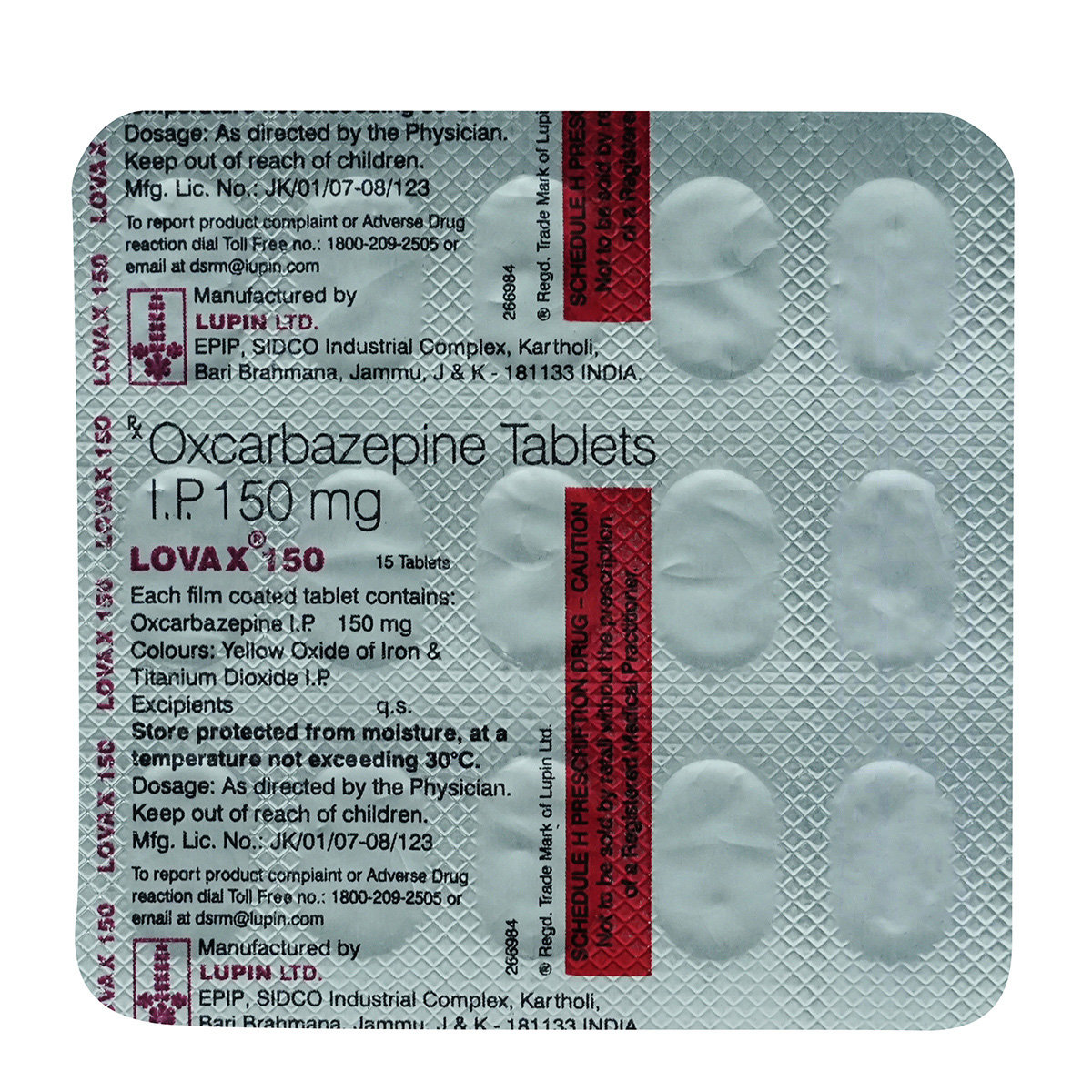
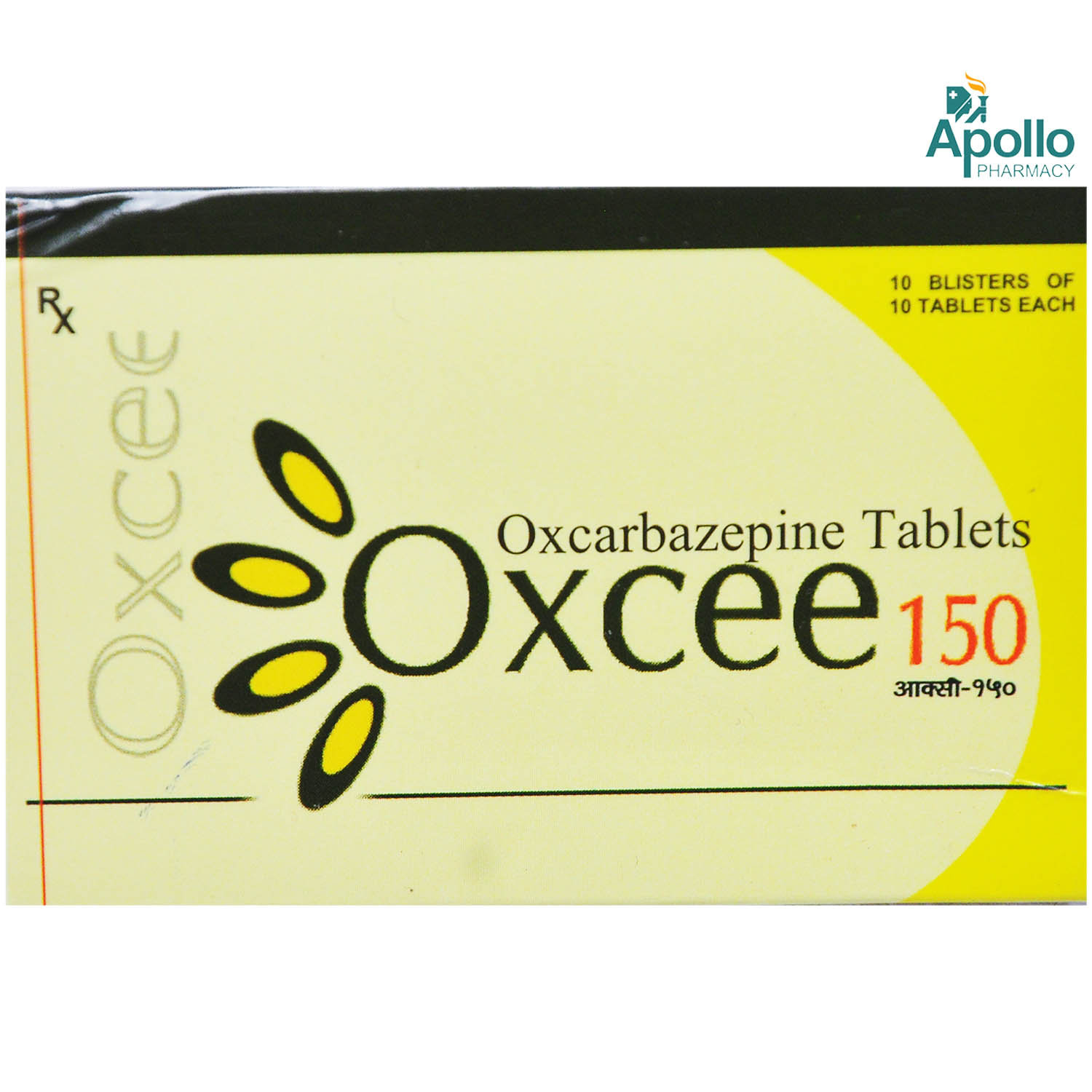

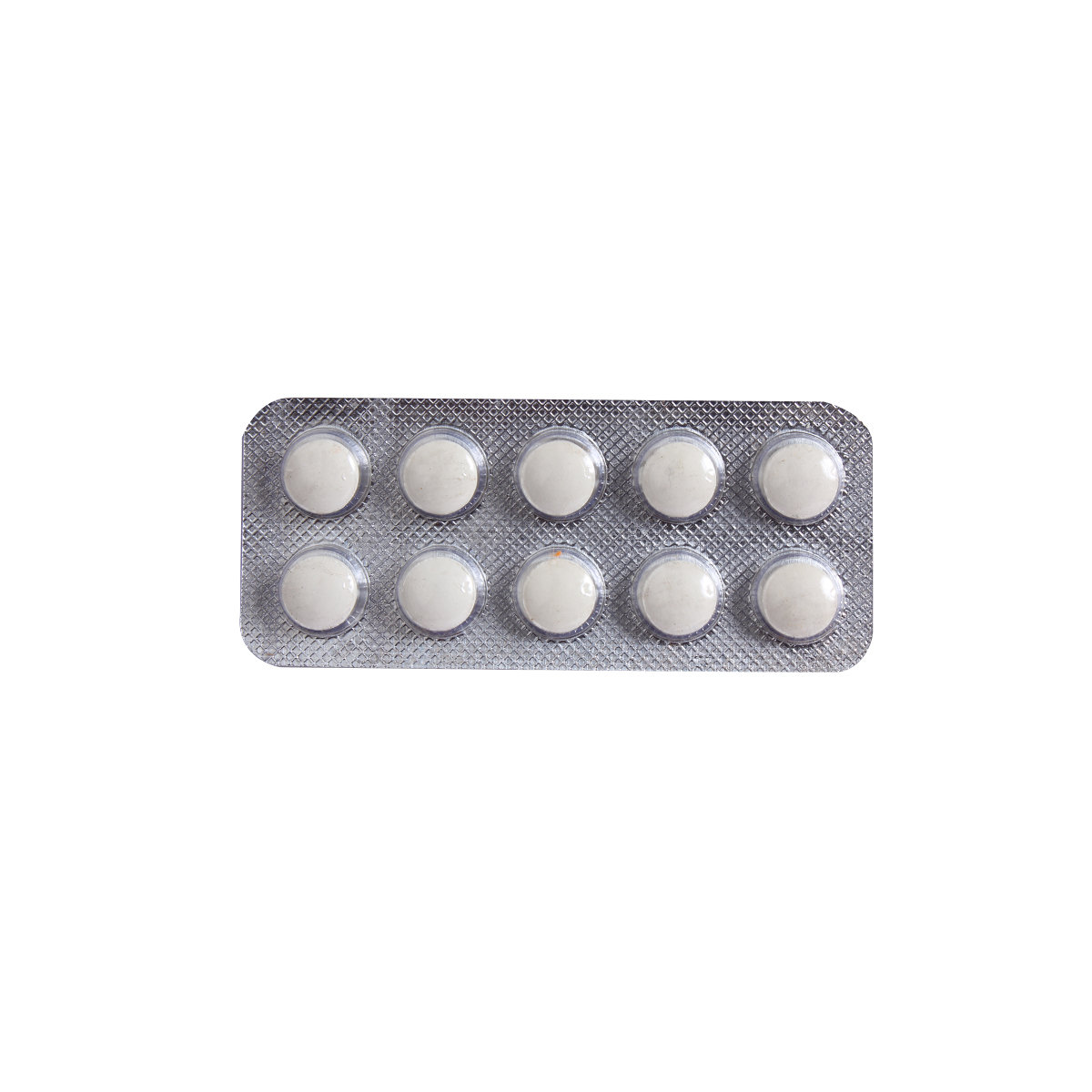
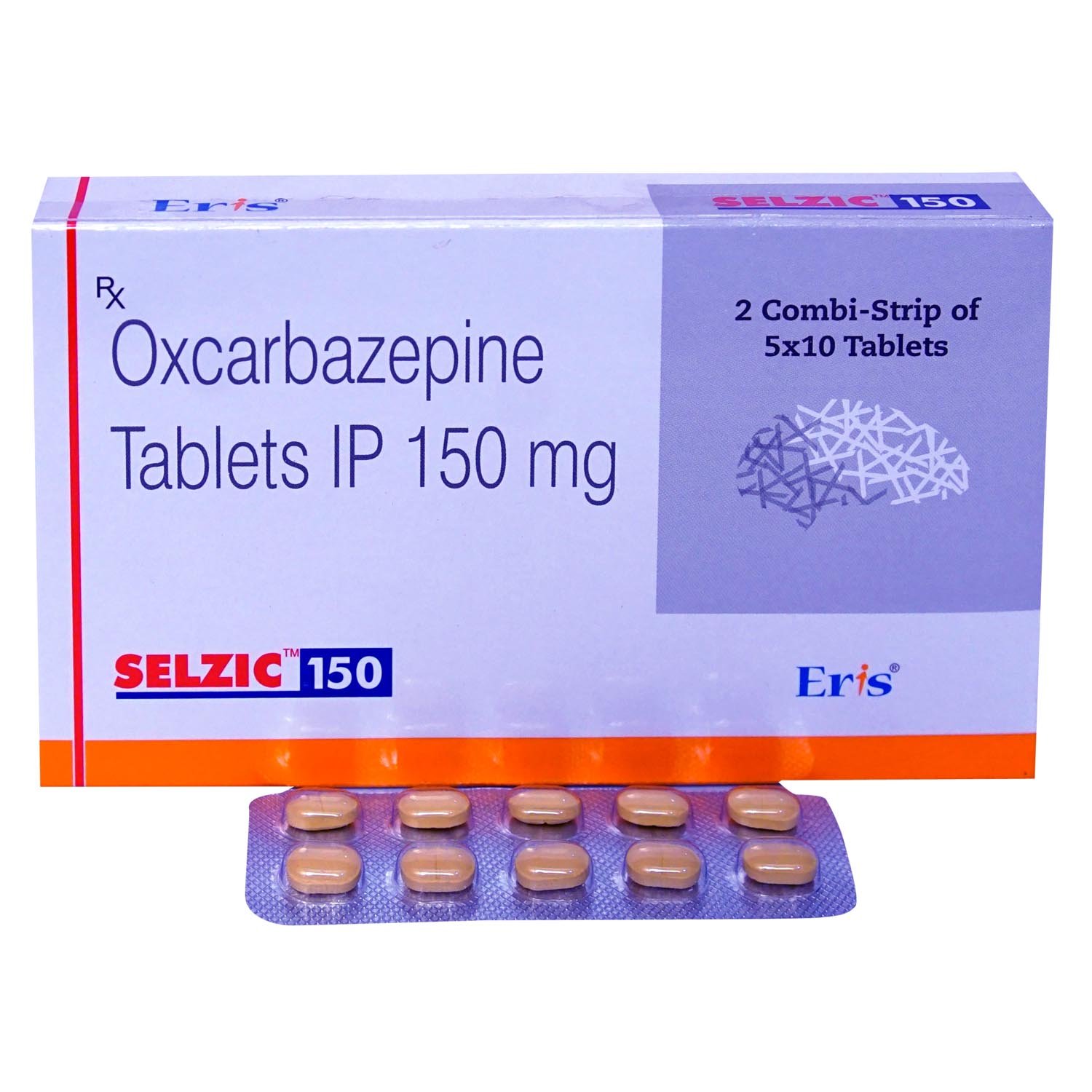
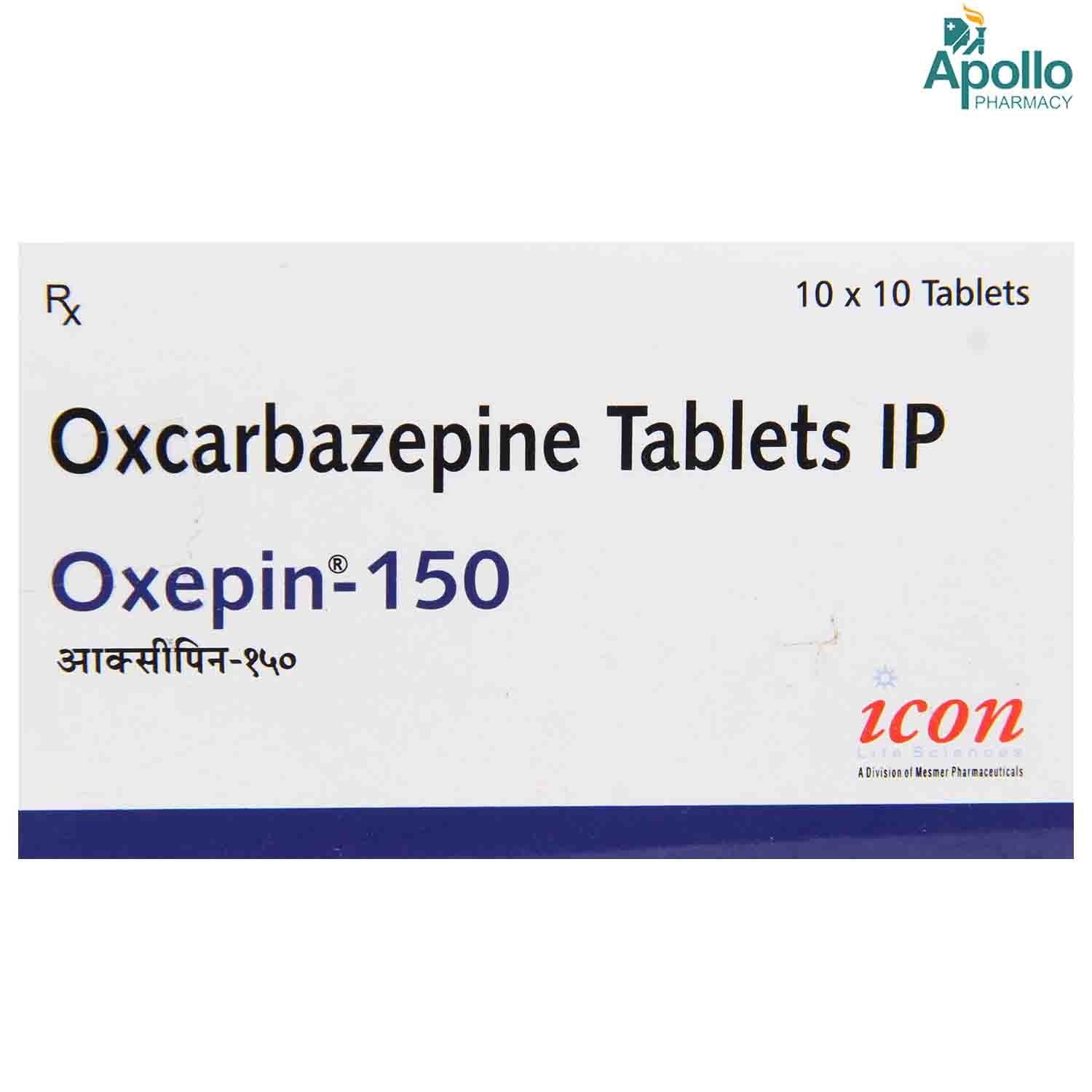

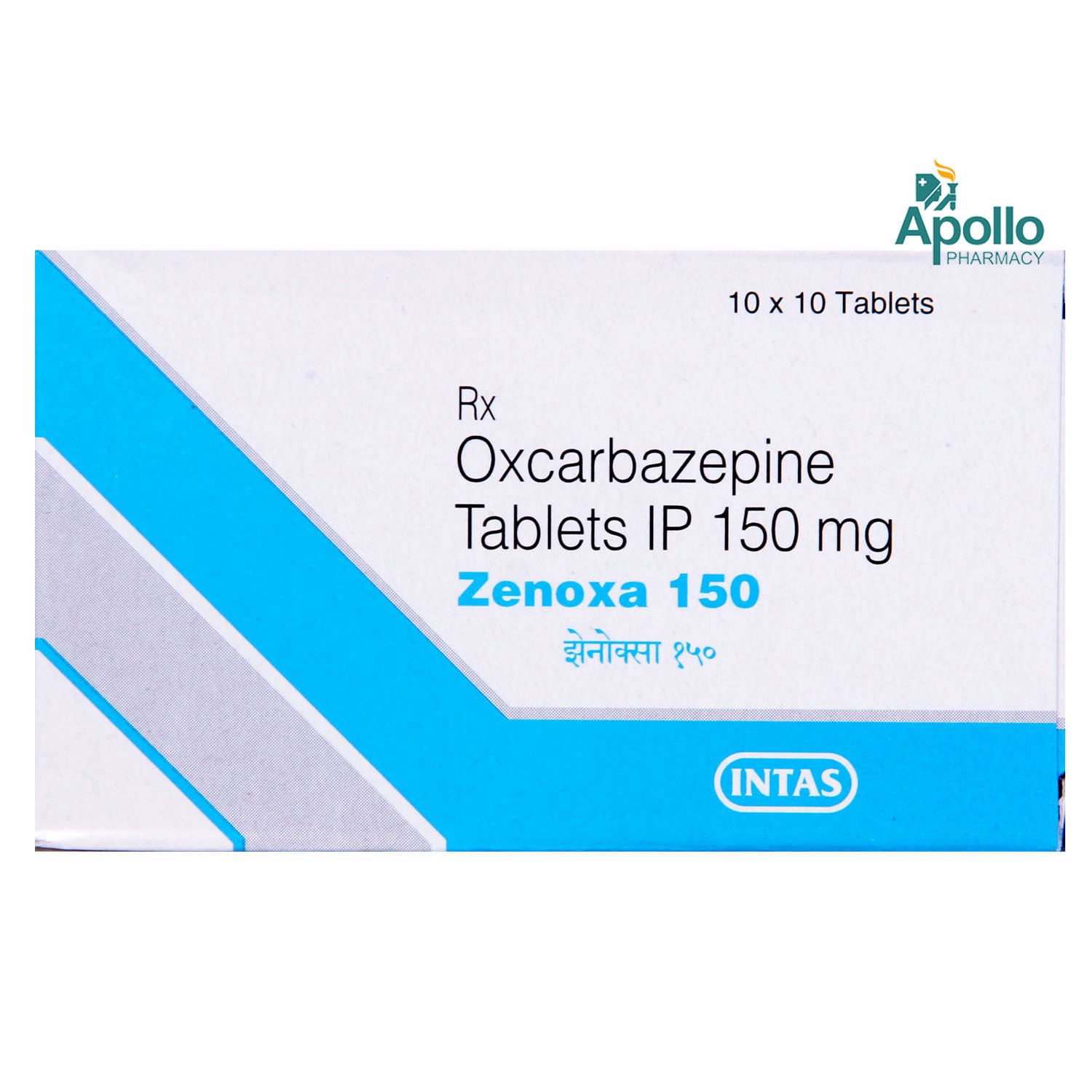
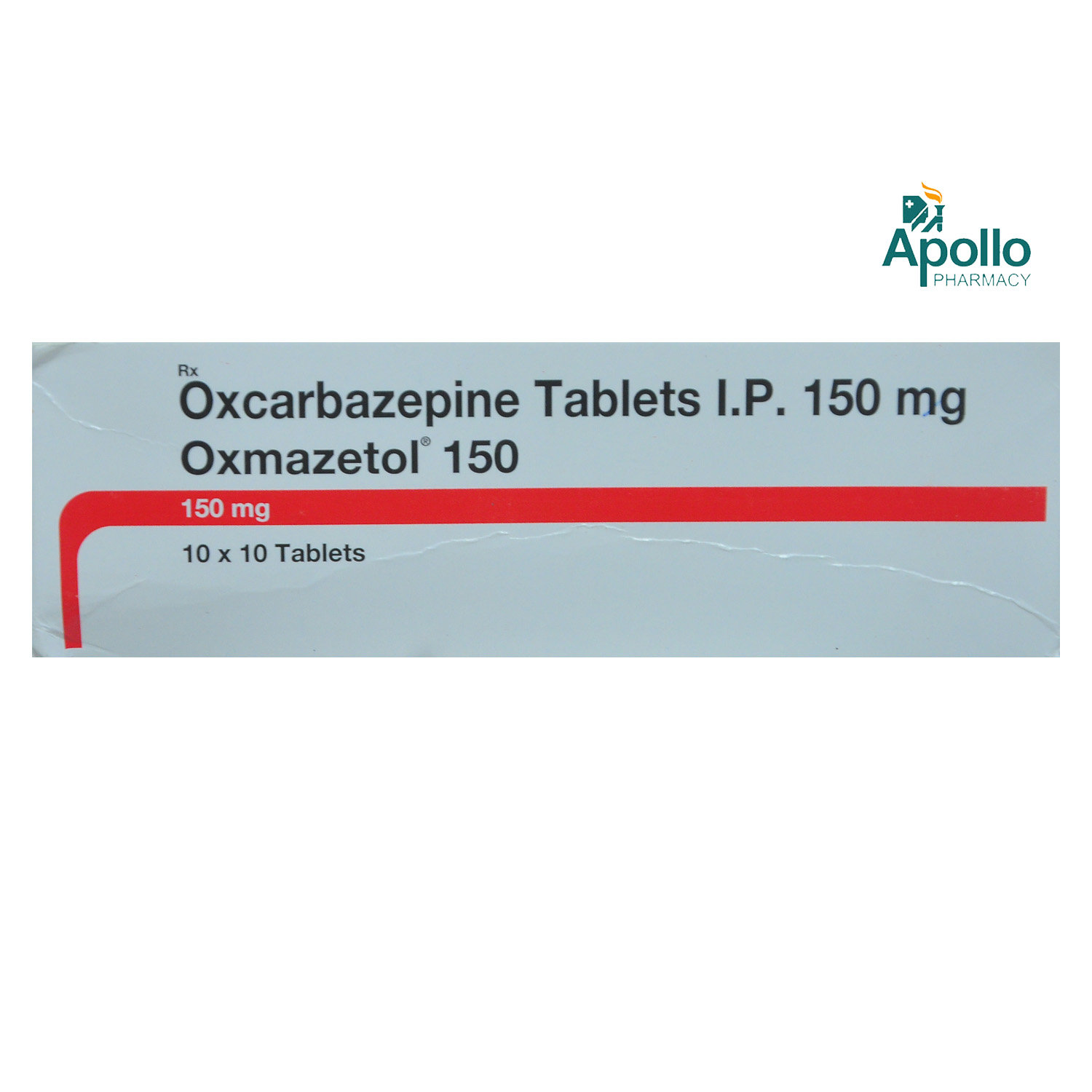
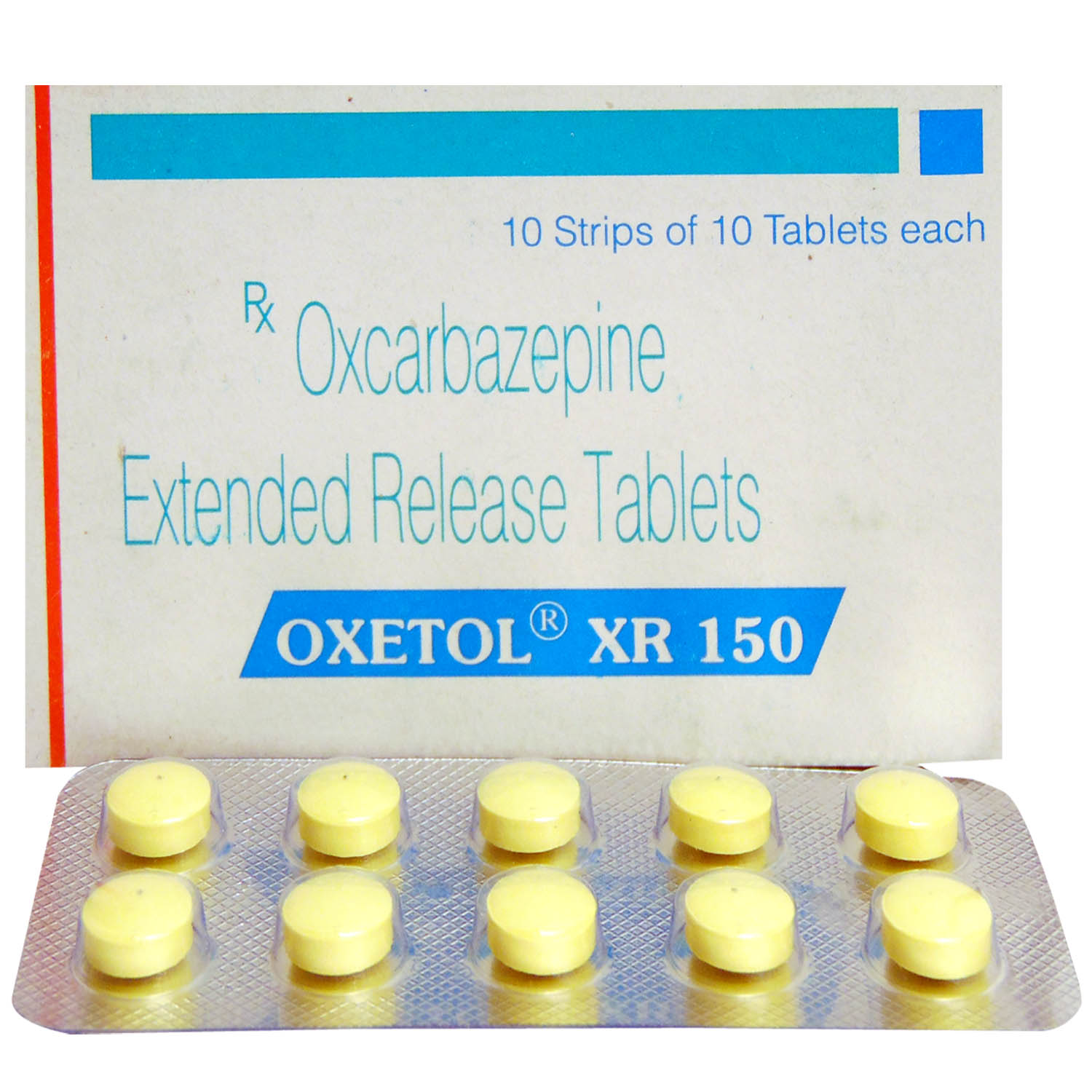

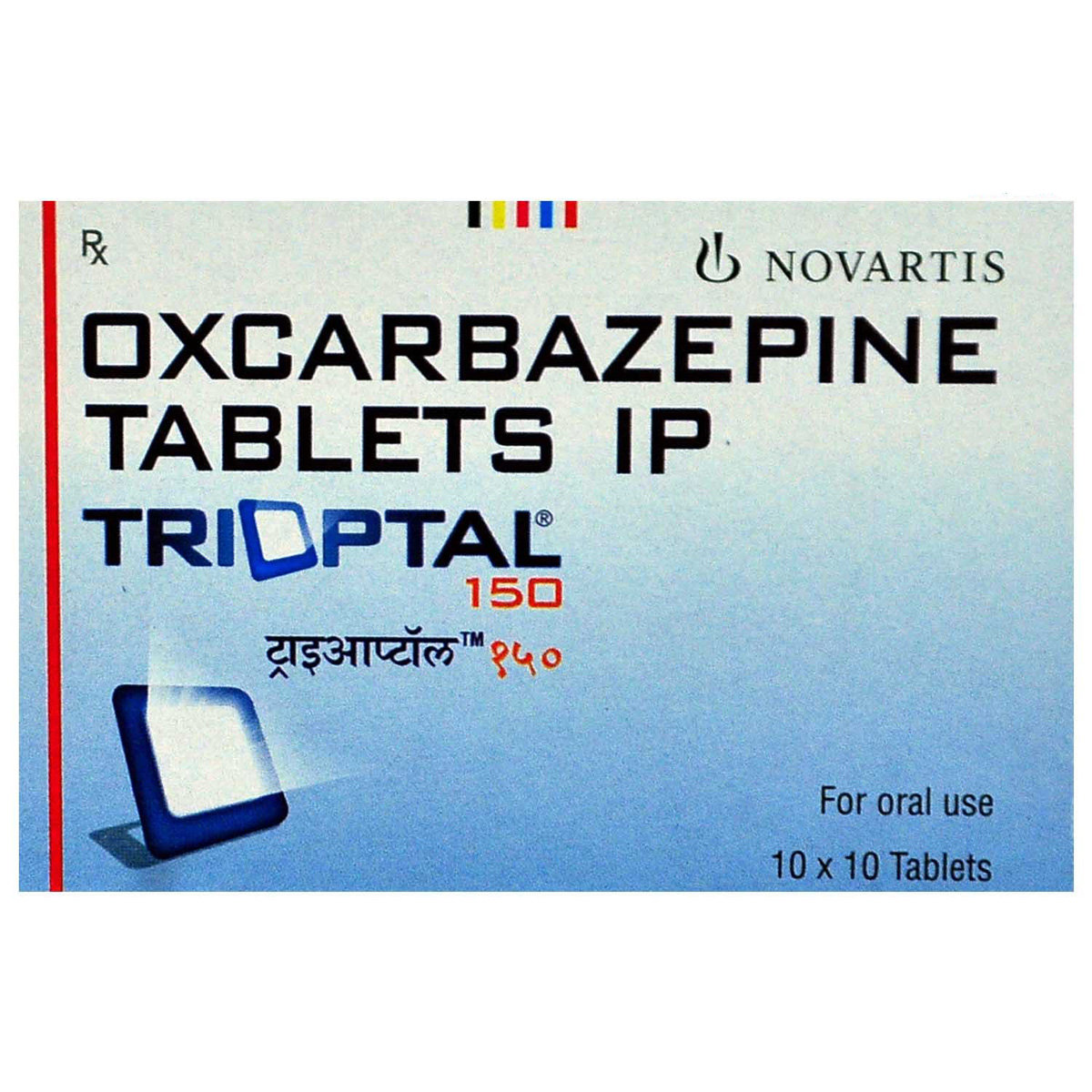
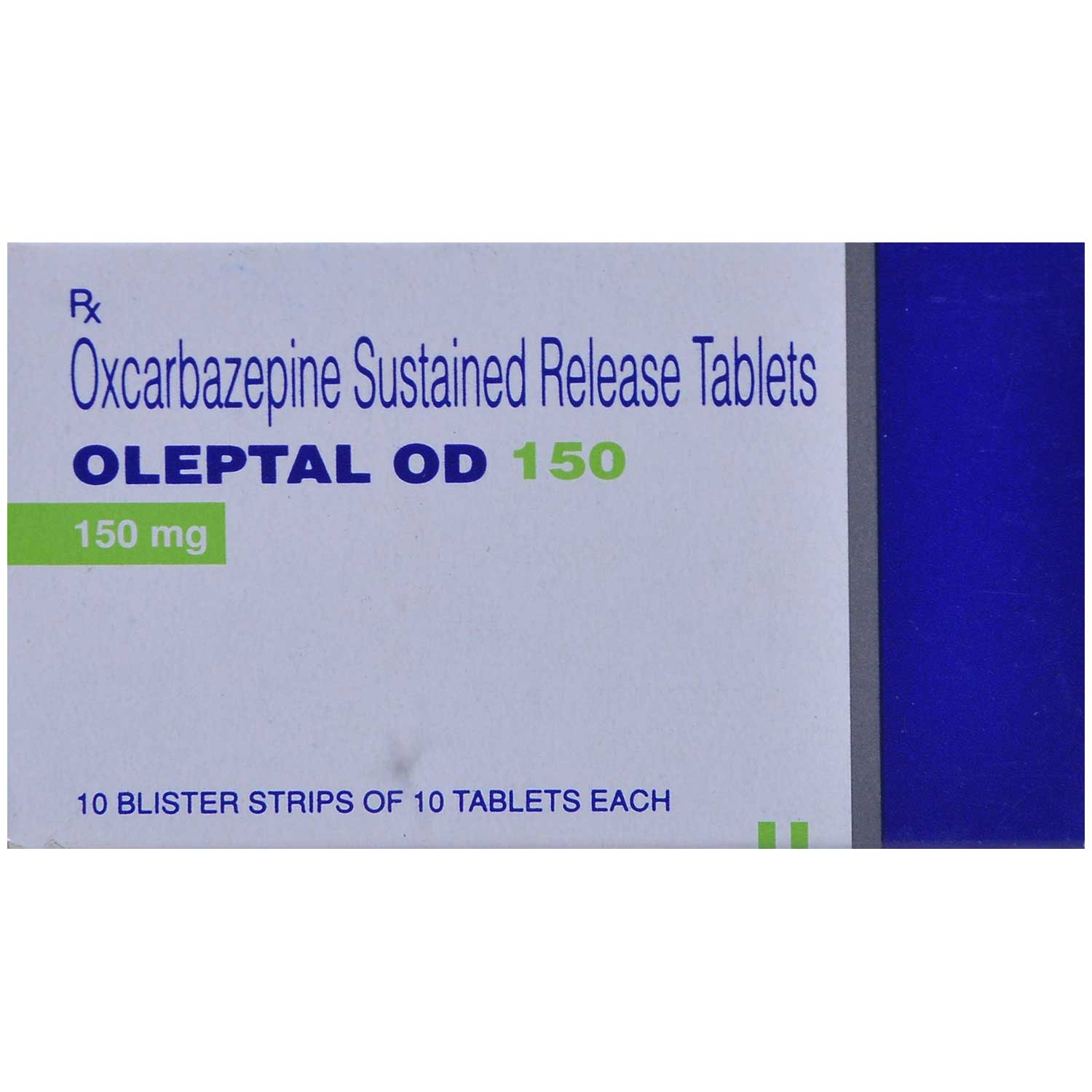
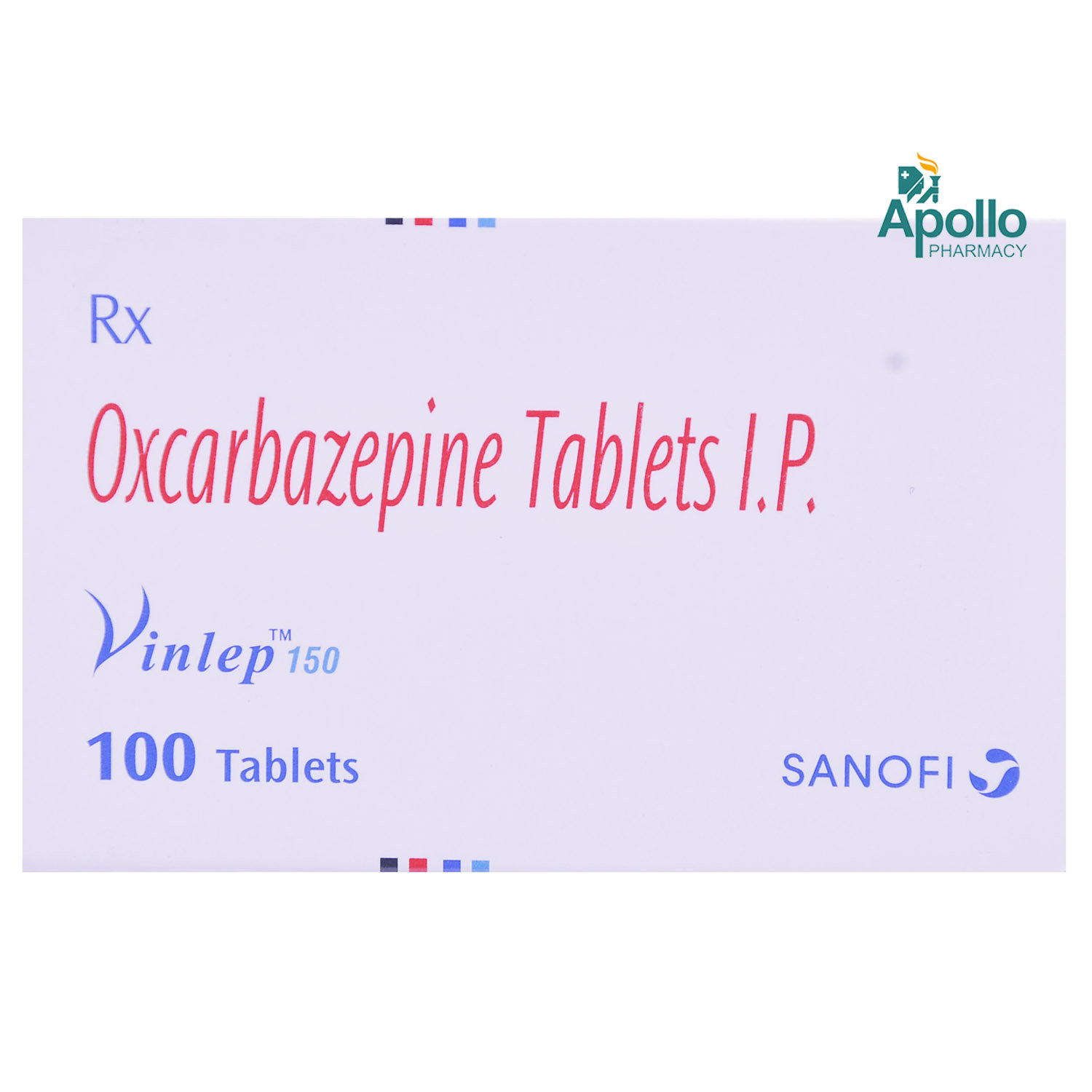

_0.jpg?tr=q-85)

